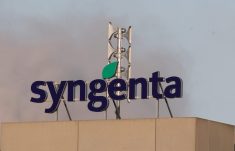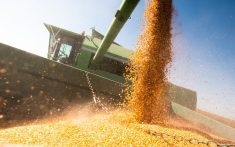The federal government’s 2021 budget offers up new spending to support farmers combatting climate change through targeted investments — and, in some cases, direct payments.
Finance Minister Chrystia Freeland released the budget Monday, showing the majority of new spending will take place over three years and be largely focused on “green growth.”
“Budget 2021 announces the government’s intention to return a portion of the proceeds from the price on pollution directly to farmers in backstop jurisdictions (currently Alberta, Saskatchewan, Manitoba and Ontario), beginning in 2021-22,” Freeland’s budget documents said.
Read Also

BASF cuts 2025 outlook as tariffs weigh on global economy
Germany’s BASF said on Friday that it was lowering its full-year outlook, citing weaker-than-expected global economic growth and reduced demand for its chemicals due to U.S. tariffs.
Farmers are expected to receive roughly $100 million in the first year, and “returns in future years will be based on proceeds from the price on pollution collected in the prior fiscal year, and are expected to increase as the price on pollution rises.”
Further details are expected to be released later this year. Some of the provinces currently subject to the federal backstop have recently signalled intent to design their own carbon pricing schemes, meaning producers in those provinces wouldn’t be eligible for the federal payments.
Budget 2021 also extends funding for the Agricultural Clean Technology Program. The $25-million, three-year investment launched in 2018 is to be replaced by a $165 million allocation as the program continues to expand.
According to the budget, $50 million is being prioritized for the purchase of more efficient grain dryers for farmers.
“These initiatives will help farmers transition to lower-carbon, more fuel-efficient ways of farming,” it said.
Freeland’s “green and clean” budget hails farmers as “major players in Canada’s fight against climate change.”
“The agricultural sector has the potential to scale up climate solutions, many of which are already underway across the country,” the budget said.
An additional $200 million over two years is being added to the Agricultural Climate Solutions program, which will “will target projects accelerating emission reductions by improving nitrogen management, increasing adoption of cover cropping, and normalizing rotational grazing.”
That funding will kick in during the 2021-22 fiscal year.
Ottawa also plans to allocate $60 million over the next two years from the Nature Smart Climate Solutions Fund to “target the protection of existing wetlands and trees on farms, including through a reverse auction pilot program.”
A consultation process for carbon border adjustments will also be announced in the coming weeks, Freeland announced.
“This consultation process will begin in the summer with targeted discussions, including with provinces and territories, importers, and exporters — especially those who deal in emissions-intensive goods. The broader public will be engaged this fall,” the budget said.
“Throughout this process, the government intends to continue its international engagement with like-minded partner.”
Because Canada’s Clean Fuel Standard is expected to reduce greenhouse gases by more than 20 megatonnes in 2030, the government is spending $67.2 million over seven years to implement and administer it.
“This standard creates new economic opportunities for Canada’s biofuel producers, including farmers and foresters, who are part of the diverse supply chain for low-carbon fuels. Making this investment now will secure Canada’s future competitiveness in the global transition to a low-carbon economy,” it said.
The government’s spending plans also account for $292.5 million over seven years in compensation to Canada’s supply managed sectors for the CETA and CPTPP trade deals.
The budget confirms a program supporting temporary foreign workers is being extended into 2021-22 to assist with costs associated with COVID-19 and mandatory isolations. It will then be slowly eliminated.
Another $57.6 million is being spent to extend the program, which offers up to $1,500 per worker in isolation until June 15 this year.
“If workers are required to quarantine at a government-approved facility, due to a lack of suitable facilities at their employers’ facilities, employers can receive up to $2,000 per worker for costs associated with mandatory isolation requirements,” the budget said.
After June 15, employers will be able to receive $750 per worker “until the wind-down of the program” on Aug. 31.
Following this, the government intends to phase out the program, but “will consult with employers on the transition to ensure that migrant workers are similarly compensated through their quarantine period by their employers.”
Over six years, the government plans to spend $1 billion on the Universal Broadband Fund “to support a more rapid rollout of broadband projects in collaboration with provinces and territories and other partners.”
— D.C. Fraser reports for Glacier FarmMedia from Ottawa.















